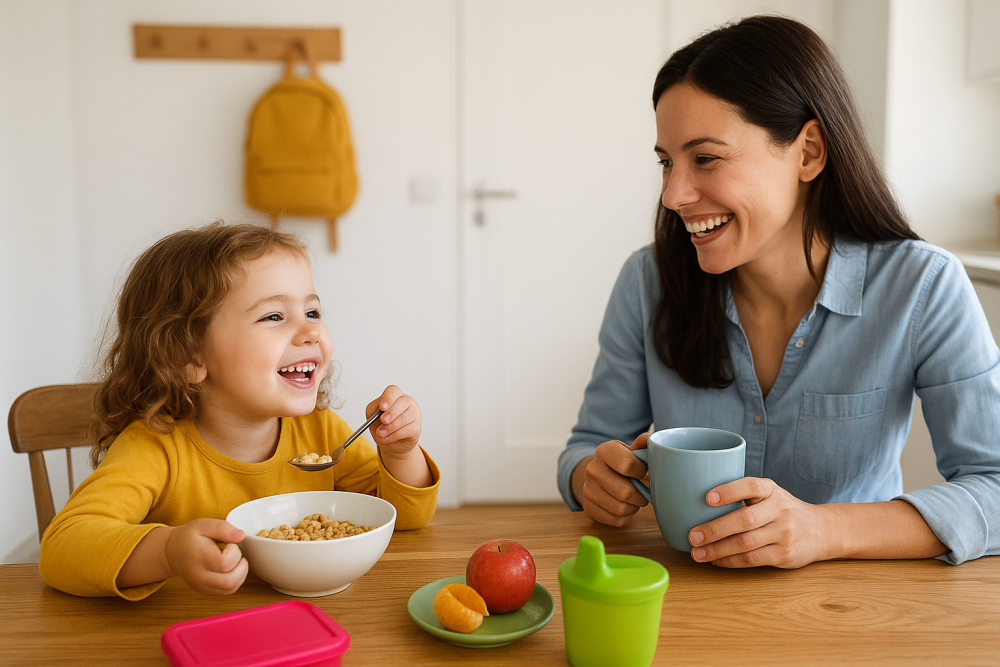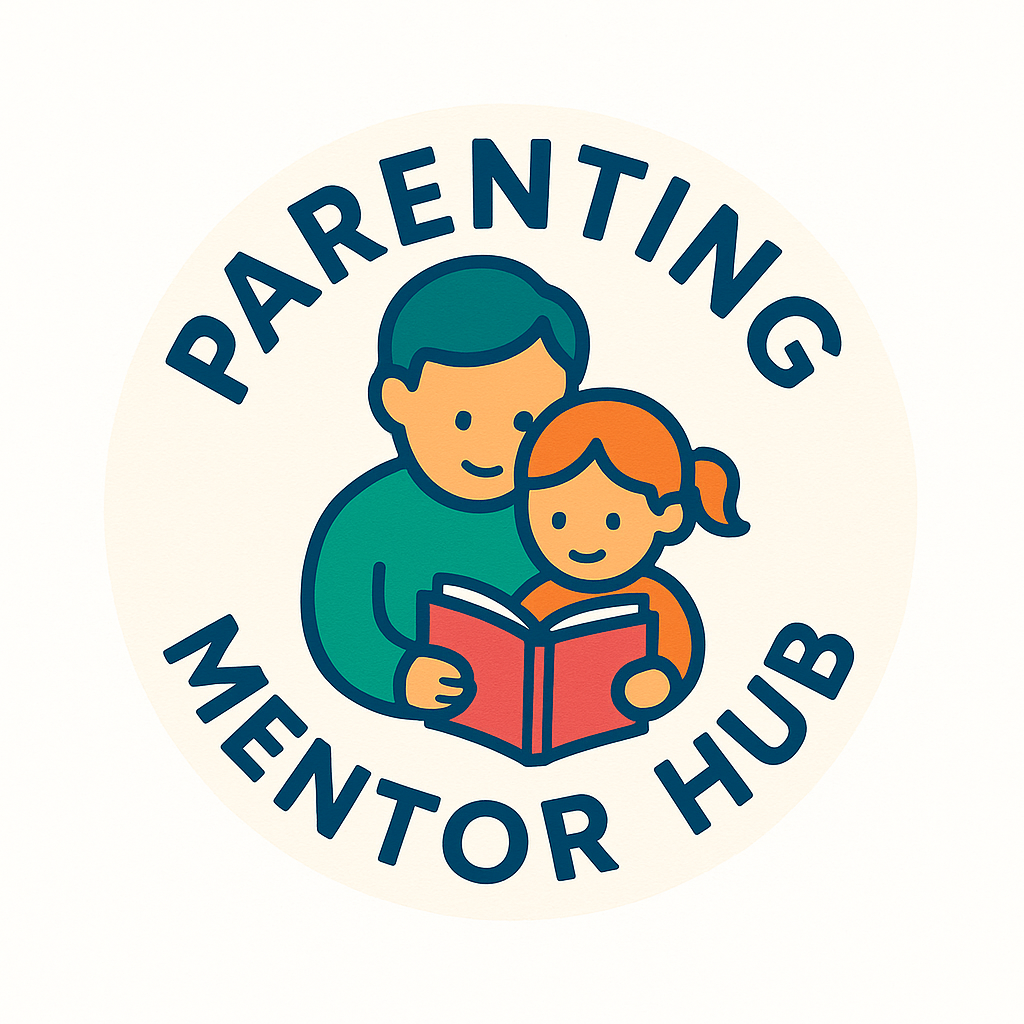
Ever feel like your child is bright-eyed and ready to start the day long before you’ve even had a sip of coffee? Mornings with young children can feel like a race against the clock – getting everyone dressed, fed, and out the door without tears (theirs or yours). The good news is that mornings don’t have to be chaotic. With simple, age-appropriate routines, it’s possible to create calmer starts that leave the whole family feeling more prepared for the day ahead.
Structured routines give children a sense of security and help everyone step into the day more calmly. They also make life easier for parents, turning the morning rush into something smoother – and perhaps even enjoyable.
Why Structured Morning Routines Matter
Young children thrive on predictability. Routines reduce power struggles, build confidence, and ease daily transitions. Research shows that families with consistent morning habits experience fewer conflicts, better emotional regulation, and improved readiness for school.
Child development experts agree that good routines improve behaviour, build independence, and take the stress out of the daily rush. Here are age-appropriate ideas to help mornings run more smoothly.
Morning Routines for Toddlers (Ages 1–3)
Toddlers need simple steps, patience, and lots of encouragement. Visual cues such as toys or charts can make the process easier.
- Start with comfort: Begin the day with a cuddle or favourite toy to ease the transition from sleep.
- Toilet and nappy routine: Head straight to the potty or a nappy change.
- Washing: Make hand and face washing fun with songs or games (even if you’re not fully awake yet yourself).
- Getting dressed: Lay out two clothing options to give a sense of choice.
- Breakfast: Offer familiar foods alongside one new item. Setting the table the night before can save time.
- Brush teeth: Use a chart or song. Let toddlers brush first before an adult finishes up.
- Prepare to leave: Keep bags and shoes by the door. Turn coats into a game. If gloves are refused, take them along – when little hands get cold, gently explain that putting them on earlier would have kept them warmer.
The key at this stage is keeping routines short and consistent, while celebrating small successes with praise.
Morning Routines for Preschoolers (Ages 3–5)
Preschoolers enjoy the sense of achievement that comes with independence.
- Wake up gently: A cuddle or a child-friendly clock helps them learn about time.
- Morning toilet trip: Encourage independence but stay nearby if needed.
- Wash and dress: Add fun with rhymes or songs. Choosing clothes the night before helps.
- Breakfast: Limit distractions like TV or tablets to keep things moving. Chat about the day instead.
- Brush teeth: A fun flavour or cartoon character toothpaste can help.
- Pack bag: Use a visible checklist so they can tick items off.
- Outdoor clothes: Make dressing playful. If they resist coats because it’s warm inside, take the jacket along – realising it’s cold outdoors is a lesson in itself.
Short routines, practised regularly, help preschoolers gain confidence and independence.
Morning Routines for Primary School Children (Ages 5–11)
By this stage, children are ready for longer routines and more responsibility, though reminders still help.
- Wake up on time: Encourage use of an alarm clock – it’s neutral, and you’re not the one dragging them from their cosy bed. A mention of something nice for breakfast may tempt them up.
- Personal hygiene: Washing, brushing teeth, and brushing hair build independence. (Though many girls still need a parent – often Mum – for plaits.)
- Dressing: Lay out uniforms the night before.
- Breakfast: Offer healthy choices like porridge, fruit, or wholegrain toast. Letting them choose the night before can keep mornings smooth.
- Pack school bag: Essentials like books, PE kit, lunch box, and water bottle should be mostly packed the night before. A checklist helps children take ownership.
- Screen-free rule: Keep tech off until everything’s done to avoid distractions.
- Ready to go: Have a set place for coats, bags, and shoes. A cheerful alarm five minutes before leaving can make departures easier.
Gradually stepping back while praising initiative encourages independence and responsibility.
Tips for Making Routines Stick
- Prepare the night before: Lay out clothes, prep lunches, and check bags.
- Use visual aids: Charts or drawings help younger children and those with additional needs.
- Stay calm: If mornings unravel, reset later rather than turn it into a battle.
- Build in buffer time: Ten spare minutes absorbs last-minute delays.
- Reward effort: Praise, stickers, or a promised detour through the park keep motivation up.
Trial and error is normal. Often routines work best after small adjustments – especially in families with multiple children, different schools, or varied personalities.
Shaping Routines for Your Family
Every family’s mornings look different. Shift work, siblings of different ages, or staggered schedules may call for creative adjustments. Older children can help younger ones, or jobs can be divided based on strengths – one sets the table, another packs snacks.
Children with additional needs may need extra support. For example, many autistic children feel calmer with strict predictability, so advance warnings and consistent routines can make a big difference. In truth, most children benefit from gentle notice before any change – whether it’s a school trip, an early appointment, or simply a different breakfast.
Mornings with young children may never be perfectly smooth, but the right routines make them far less stressful. And who knows – you might even get to finish that first cup of coffee while it’s still hot.
